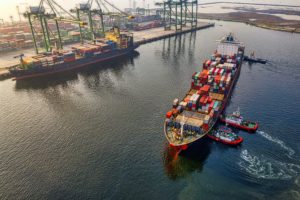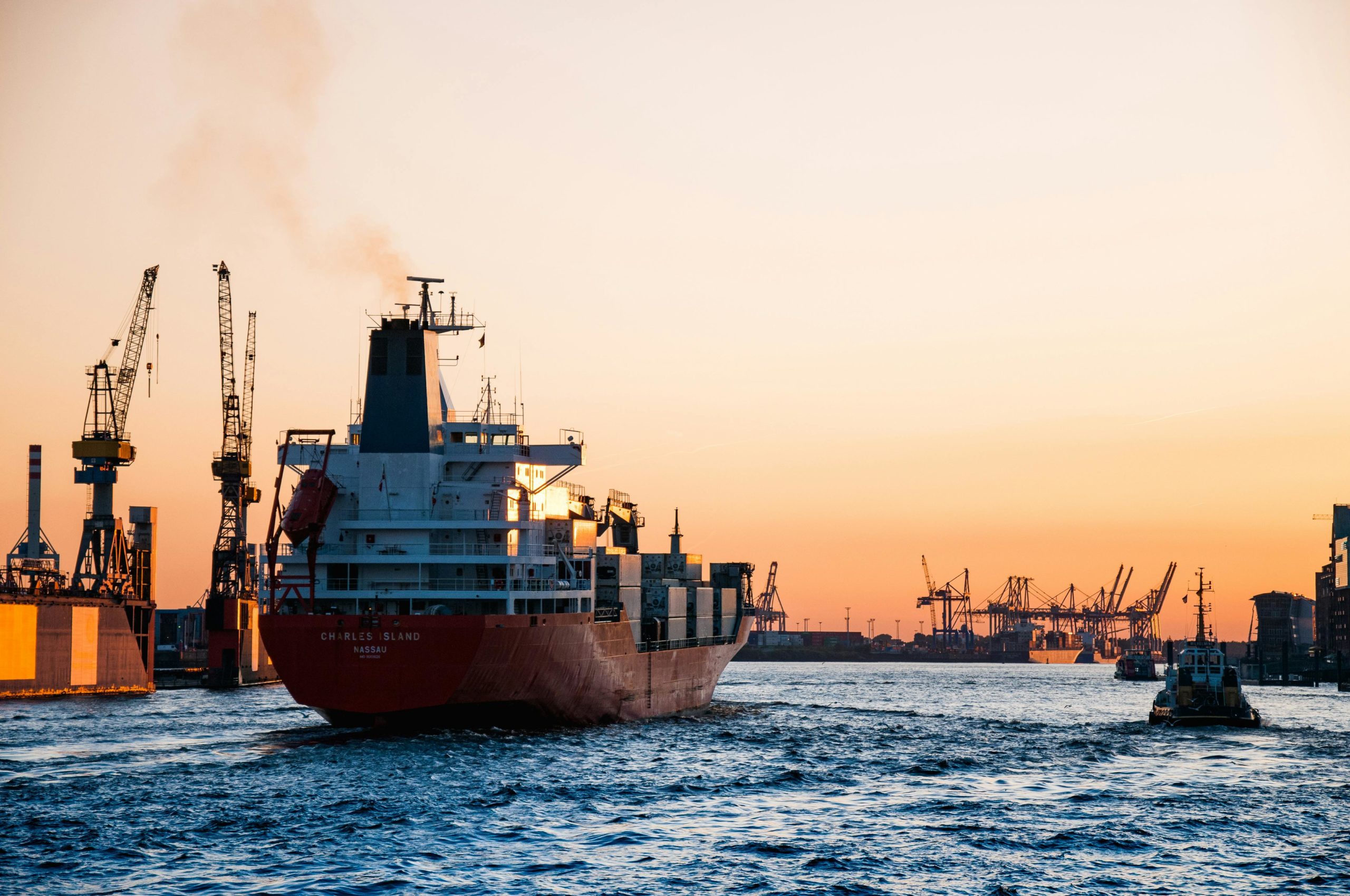About the webinar
How to reduce carbon emissions from maritime transport?
The reduction of transport-related emissions represents a critical challenge in the reduction of greenhouse gas emissions globally. Whilst maritime freight has a much lower impact than air freight, it is essential to address emissions from maritime shipping to limit further emissions due to the growth of the sector. Before Covid 19, the climate impact of maritime freight — in large part originating from heavy fuel oil — summed up to around 3% of total global emissions (1). Ultimately, this reduction objective must be achieved through organisations’ changes in the choice of transport options, but also through long-term structural developments in infrastructure and technology.
This webinar provided an introduction into larger industry efforts to decarbonise maritime freight and presented concrete solutions on how organisations can already act today to reduce the impact of the shipping of goods.
- Carlo Raucci, Director of Sustainable Fuels and Strategy, Lloyd’s Register Maritime Decarbonisation Hub, provided an introduction to the topic and delved into several of Lloyd Register’s initiatives and partnerships to support the necessary changes in the shipping industry for deep decarbonisation in the mid- to long-term. Such include The Silk Alliance for the creation of a “green corridor cluster” to encourage zero-emission shipping, as well as The Zero Emission Maritime Buyers Alliance to accelerate clean shipping and economies of scale.
- Sofia Fürstenberg Stott, Partner at Fürstenberg Maritime Advisory (FMA), presented an overview on the progress and challenges regarding greener fuels. Following an introduction to different types of greener fuels and their specificities, she presented practical advice to organisations that are looking to request the use of greener fuels from transport providers.
- Christian Krause, Business Development Manager Humanitarian Aid & Relief, Maersk, presented Maersk’s decarbonisation strategy and provided insights on how practitioners from organisations can already reduce emissions from their maritime freight today.
These presentations were followed by a question-answer session, enabling participants to further explore the proposed solutions and concepts with the speakers.
When and where?
📆 June 11, 2024 (Tuesday) | 1.00 – 2.30 pm (CET Geneva time)
💻 Online
🇬🇧 Language: this webinar was held in English and translated simultaneously into French via a Zoom plugin.
Speakers
- Carlo Raucci, Director of Sustainable Fuels and Strategy, Lloyd’s Register Maritime Decarbonisation Hub
Dr. Carlo Raucci is Director, Sustainable Fuels and Strategy at the Lloyd’s Register (LR) Maritime Decarbonisation Hub. He has more than 14 years of experience in research in the fields of shipping and climate change, as well as energy systems transition and low carbon transportation.
Carlo also has extensive experience in the development of data analytics models, such as: a model for assessing the evolution of a fleet, a model to assess the competitiveness of zero-emissions vessels, and a model to forecast future zero-carbon fuel prices.
Carlo holds a PhD in Energy and Transport from the University College London, where his dissertation focused on ‘The potential of hydrogen as a fuel for shipping’. His research is one of the first to suggest the use of hydrogen to decarbonise the shipping industry. He has also authored several publications on the topic of transition to zero-emissions vessels and delivered a number of projects advising governments, international organisations, shipping companies and port authorities on decarbonisation strategy.
- Sofia Fürstenberg Stott, Partner at Fürstenberg Maritime Advisory (FMA) 2023
Sofia founded FMA in 2017, which today is a specialised consultancy focused towards holistic sustainability strategies for progressive maritime stakeholders, as well as a leading analyst house related to the maritime energy transition. Located in Sweden, FMA is a supporting member of the Nordic Roadmap; a Nordic Council green corridor project, as well as of the Getting To Zero Coalition, and FMA collaborates in various focus groups at the International Bunker Industry Association (IBIA), as well as with the Ammonia Energy Association (AEA).
Sofia has previously lead innovation programmes at Maersk, developed pioneering exhibitions and conferences for Nor-Shipping, and advised shipowners on greener solutions, with DNV. She has close to 20 years of experience in the shipping industry, having worked and lived in Oslo, Singapore, and Copenhagen, and is an immediate past Board Member of WISTA International. She has a background as Chemical Engineer from Lund Institute of Technology, Executive Diploma from Haas Business School, Berkeley, California, and an Executive MBA in Shipping & Logistics from Copenhagen Business School.
- Christian Krause, Business Development Manager Humanitarian Aid & Relief, Maersk
Currently located close to Hamburg, Germany, Christian Krause is a member of the Humanitarian Aid and Relief team at Maersk. After having developed a background in logistics for over a decade, he is now primarily in charge of linking humanitarian partners such as RCRC, the UN, NGOs, and suppliers to Maersk for their logistics needs.
Christian first worked with a Germain container carrier, Hamburg Süd. After an acquisition through Maersk, he began searching for ways to link his logistics knowledge with his affinity for humanitarian action—eventually leading him towards the Humanitarian Logistics sector. Now, he is increasingly and continuously supporting Maersk’s partners as they progress in their decarbonisation journeys, by sharing his insight on how to practice more sustainable logistics.
Missed the webinar? Watch the recording below or watch it directly on our YouTube channel!
Watch the replay
Download the presentation
Featured
Shift from Air to Sea freight

How MSF France reduced its carbon footprint by switching to sea freight
Sources
(1) ICCT – Greenhouse gas emissions from global shipping, 2013 – 2015.
Cover photo: Martin Damboldt/Unsplash
